Filter by
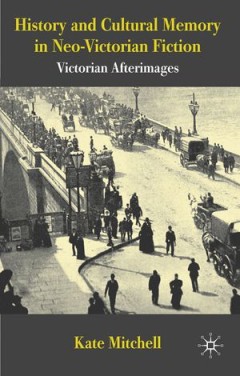
History and Cultural Memory in Neo-Victorian Fiction : Victorian Afterimages
History and Cultural Memory in Neo-Victorian Fiction combines innovative literary and historiographical analysis to investigate the way neo-Victorian novels conceptualise our relationship to the Victorian past, and to analyse their role in the production and communication of historical knowledge. Positioning neo-Victorian novels as dynamic participants in the contemporary historical imaginary, …
- Edition
- -
- ISBN/ISSN
- 9780230228580
- Collation
- IX, 222 halaman
- Series Title
- -
- Call Number
- 800 MIT h
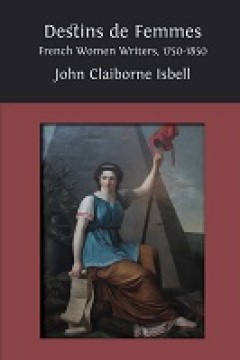
Destins de femmes: French Women Writers, 1750-1850
Destins de femmes is the first comprehensive overview of French women writers during the turbulent period of 1750-1850. John Isbell provides an essential collection that illuminates the impact women writers had on French literature and politics during a time marked by three revolutions, the influx of Romantic art, and rapid technological change. Each of the book’s thirty chapters introduces a…
- Edition
- Ed. 1
- ISBN/ISSN
- 9781805110323, 9781805110330
- Collation
- 202
- Series Title
- -
- Call Number
- 909 ISB d
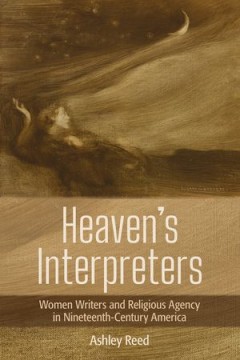
Heaven's Interpreters : Women Writers and Religious Agency in Nineteenth-Cent…
In Heaven's Interpreters, Ashley Reed reveals how nineteenth-century American women writers transformed the public sphere by using the imaginative power of fiction to craft new models of religious identity and agency. Women writers of the antebellum period, Reed contends, embraced theological concepts to gain access to the literary sphere, challenging the notion that theological discourse was e…
- Edition
- -
- ISBN/ISSN
- 9781501751387
- Collation
- -
- Series Title
- -
- Call Number
- 800 REE h

Points of Entanglement in French Caribbean Travel Writing (1620-1722)
This open-access book investigates Francophone Caribbean literature by exploring and analyzing French seventeenth-century travel writings. The book argues for a literary re-examination of the representation of the early colonial Caribbean by proposing theoretical linkages to contemporary Caribbean theories of creolization and archipelagic thinking. Using Édouard Glissant’s notion of points o…
- Edition
- -
- ISBN/ISSN
- 9783031233562
- Collation
- -
- Series Title
- -
- Call Number
- -
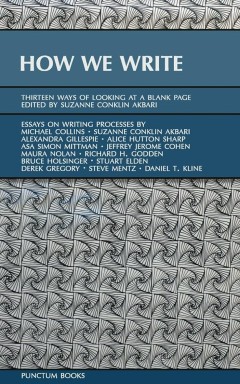
How We Write : Thirteen Ways of Looking At a Blank Page
The contributors range from graduate students and recent PhDs to senior scholars working in the fields of medieval studies, art history, English literature, poetics, early modern studies, musicology, and geography. All are engaged in academic writing, but some of the contributors also publish in other genres, includes poetry and fiction. Several contributors maintain a very active online presen…
- Edition
- -
- ISBN/ISSN
- 9780692519332
- Collation
- 182 halaman
- Series Title
- -
- Call Number
- 800 AKB h
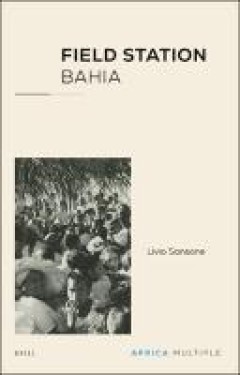
Field Station Bahia: Brazil in the Work of Lorenzo Dow Turner, E. Franklin Fr…
This book offers a new perspective on the making of Afro-Brazilian, African-American and African studies through the interrelated trajectory of E. Franklin Frazier, Lorenzo Dow Turner, Frances and Melville Herskovits in Brazil. The book compares the style, network and agenda of these different and yet somehow converging scholars, and relates them to the Brazilian intellectual context, especiall…
- Edition
- Ed. 1
- ISBN/ISSN
- 9789004527164, 9789004523937
- Collation
- -
- Series Title
- -
- Call Number
- 909.82 SAN f

Baltic Iron in the Atlantic World in the Eighteenth Century
This book looks at the one of the key commercial links between the Baltic and Atlantic worlds in the eighteenth century - the export of Swedish and Russian iron to Britain - and its role in the making of the modern world.; Readership: All those interested in Atlantic history, the history of the Baltic, the history of technology, the history of economic thought, and material culture in the eight…
- Edition
- -
- ISBN/ISSN
- 9789004161535
- Collation
- -
- Series Title
- -
- Call Number
- -

Developing Heritage – Developing Countries: Ethiopian Nation-Building and t…
Seven Ethiopian heritage sites were among the first sites on the UNESCO World Heritage List – a stunning number for an African country at the time and the product of extended international technical assistance and tourism planning. This book unpacks the beginnings of World Heritage in development thinking and the significance of national heritage for developing countries in a global context d…
- Edition
- Ed. 1
- ISBN/ISSN
- -
- Collation
- 204
- Series Title
- Africa in Global History, 1
- Call Number
- 909.82 HUB d
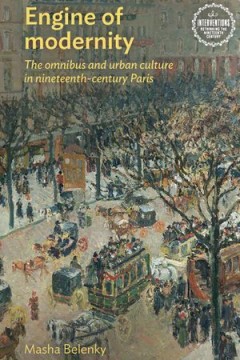
Engine of modernity : The omnibus and urban culture in nineteenth-century Paris
"Engine of Modernity: The Omnibus and Urban Culture in Nineteenth-Century Paris" examines the connection between public transportation and popular culture in nineteenth-century Paris through a focus on the omnibus - a horse-drawn vehicle for mass urban transport which enabled contact across lines of class and gender. A major advancement in urban locomotion, the omnibus generated innovations in …
- Edition
- -
- ISBN/ISSN
- 9781526138590
- Collation
- 200 halaman
- Series Title
- Interventions: Rethinking the Nineteenth Century
- Call Number
- 306 BEL e
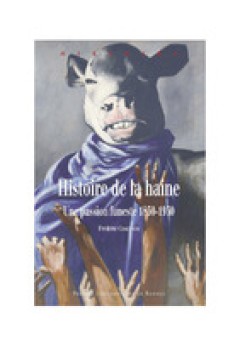
Histoire de la haine: Une passion funeste 1830-1930
La haine possède une histoire : ses expressions, ses modalités, ses logiques, ses objets et ses effets ne sont ni identiques ni immuables. Cet essai replace cette passion funeste dans son époque et cerne ses raisons évoquées par les contemporains. Si la haine est à sa manière une forme de rationalité permettant de se mouvoir dans l’univers social, elle est une « figure du pensable »…
- Edition
- -
- ISBN/ISSN
- 9782753559530
- Collation
- -
- Series Title
- -
- Call Number
- -
 Computer Science, Information & General Works
Computer Science, Information & General Works  Philosophy & Psychology
Philosophy & Psychology  Religion
Religion  Social Sciences
Social Sciences  Language
Language  Pure Science
Pure Science  Applied Sciences
Applied Sciences  Art & Recreation
Art & Recreation  Literature
Literature  History & Geography
History & Geography